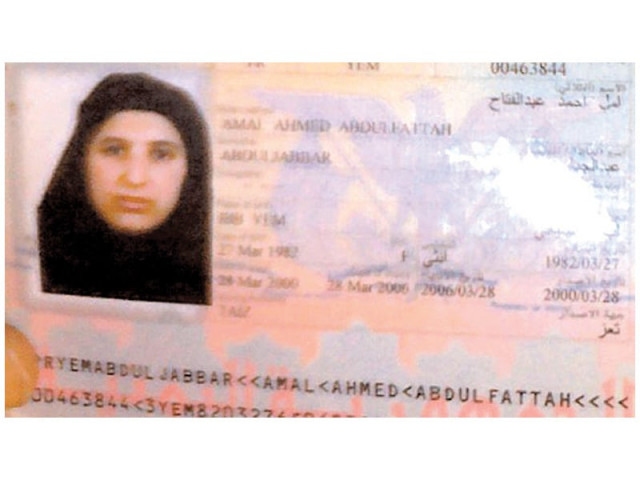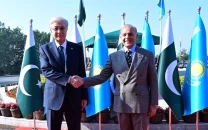Yemeni family of Bin Laden widow demands her return
Pakistan says Yemen has not requested extradition of the woman.

The Yemeni family of the youngest widow of al Qaeda chief Osama bin Laden demanded on Tuesday that she be repatriated along with her five children from Pakistan where she is being detained.
The brother of Amal Abdulfattah told AFP he had received assurances from the Yemeni ambassador in Islamabad that she is “in good health” despite sustaining a gunshot wound to the leg during the US commando raid that killed bin Laden.
“We want her to be repatriated with her five children – three daughters and two sons,” said Zakariya Abdulfattah.
“The eldest among them is Safiya who is less than 10 years old,” he added.
A Yemeni human rights organisation said on Tuesday that it was working to repatriate Amal Abdulfattah, 29.
The National Organisation for Defending Rights and Freedoms (HOOD) is acting “on behalf of the family of Amal,” part of the Al-Sada tribe of Ibb province, southwest of the capital Sanaa, lawyer Abdulrahman Baraman said.
US intelligence services have reportedly interrogated three of bin Laden’s widows who were picked up in the US commando raid in Abbottabad in which the al Qaeda leader was killed.
“We will call on the Yemeni government to demand the release and repatriation of Amal, who is detained and being questioned in Pakistan by the Americans,” said Baraman.
“She is innocent. Her only crime was having married Osama bin Laden,” he added.
He said that HOOD was planning to contact international human rights organisations to ask for their help in securing the release of Abdulfattah.
Pakistani authorities have said that neither Yemen nor Saudi Arabia – the country of origin of the other two widows – have requested the extradition of the women, who were found along with their 13 children in the villa compound where bin Laden was killed on May 2.
The young widow was married to bin Laden in 1999 through a local matchmaker, the brother said, adding that she travelled to Afghanistan to join her husband.
Saudi-born Bin Laden was already married to two other women – the first of whom was his Syrian cousin Najwa al-Ghanem.
“We agreed that he could marry Amal because we knew that he was a good Muslim, very pious, but we did not know much more,” Abdulfattah said, insisting that the dowry paid for his sister was “very modest.”
Published in The Express Tribune, May 18th, 2011.



















COMMENTS
Comments are moderated and generally will be posted if they are on-topic and not abusive.
For more information, please see our Comments FAQ